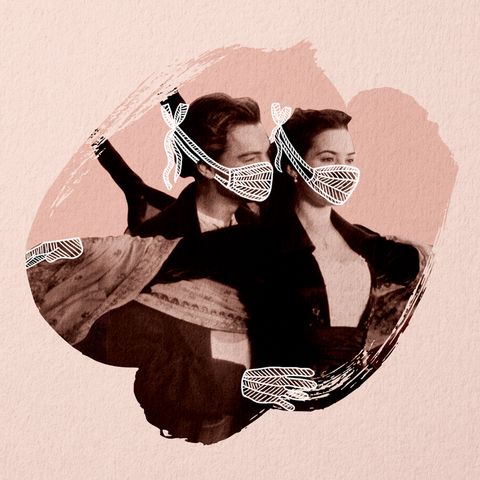The Classics Students’ Association (CSA) and History Students’ Association (HSA) teamed up on Feb. 11 to host the “Love in the Time of…” lecture series remotely. As they did for their “Haunted Histories” Halloween event earlier this academic year on Oct. 27, each student association invited two professors from their respective departments to give a short lecture, this time centred around the theme of Valentine’s Day and romance.
Under normal conditions, students would pass around sweetheart candies or heart-shaped lollipops. Even without such traditions, HSA President Dalton Liggett, U3 Arts, still fervently believes in the event’s power to bring students together.
“My favourite thing about organizing HSA events is definitely being able to meet and converse with History students,” Liggett wrote in an email to The McGill Tribune. “Amidst these ongoing circumstances, it’s rare for History majors to be able to gather together safely, even if virtually, so I cherish that.”
CSA President Taryn Power, U2 Arts, also sees these events as crucial for facilitating student connection in spite of remote learning.
“My favourite part about events this year is getting to see everyone in my program, even virtually, and we’ve had a lot of really good attendance for events,” Power wrote in an email to the Tribune. “It’s nice to be able to see that the community in the department is still pretty close knit. Plus, it’s always nice to get to learn something new for fun, outside of class, and the lecture series always deliver on that,”
For this event, the History department was represented by Brian Lewis, professor of modern British history, and Rachel Sandwell, who studies the history of women’s movements. Classics was represented by Lynn Kozak, who teaches epics and classical performance texts, and Naomi Kaloudis, who researches performance theory.
First to speak was Kozak, who spoke about her research on the NBC television series “Hannibal.” She discussed the queer subtext of “Hannibal” and its many same-gender relationships that contain romantic and sexual undertones, transcending traditional definitions of friendship. Kozak also talked about the parallels between the characters in “Hannibal” and Achilles and Patroclus from The Iliad. By looking at modern entertainment through the lens of classical literature, Kozak gained a more in-depth understanding of the forces that shaped the hit series’ plot.
Sandwell then discussed love between South African revolutionaries. Movement organizers believed that romantic and sexual relationships made young people weaker and less trustworthy. As a result, organizers dictated how young people in exile conducted relationships, thereby shaping the way young people interacted with South African politics.
After that, Kaloudis talked about pastoral poems in classical history, which are defined by their descriptions of a male figure’s unrequited love. In Theocritus’s Idylls, a goatherd falls in love with a woman named Amaryllis. Rather than casting Amaryllis as primarily the object of male fantasy, both parties possess equal agency in their relationship—a deviation from typical genre conventions of the time.
Last to speak was Lewis, who covered the history of perception regarding sexuality. Traditionally, most considered there to be a sexual binary between a heterosexual majority and a homosexual minority that was deemed deviant. In reality, throughout history, sexual attraction between people of the same gender has existed across cultures.
Given their varied academic backgrounds, the featured Classics and History professors all contributed unique perspectives to the time of love. Seeing students’ faces light up on screen when lecturers made jokes spoke to the event’s success.
“I’m really happy with what the CSA has been able to do so far, and proud of my team for doing so well adjusting to the online format,” Power wrote. “I’m just hoping that, whether I’m organizing or not, we will slowly (and safely!) get to see some of our normal traditions start back up in the coming year, but if not, it’s nice to know after this year, getting together virtually can still work so well.”








